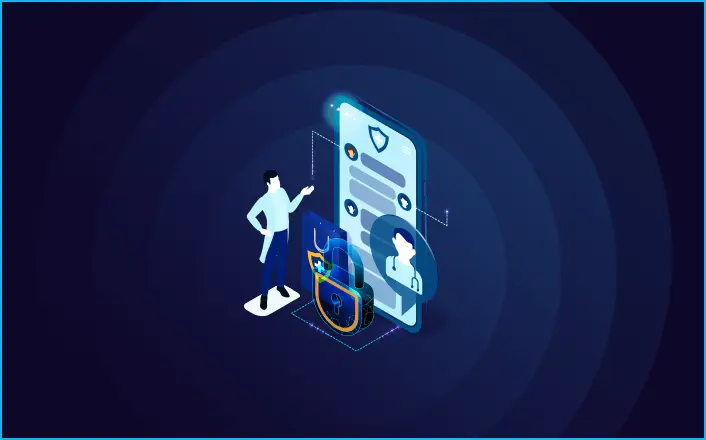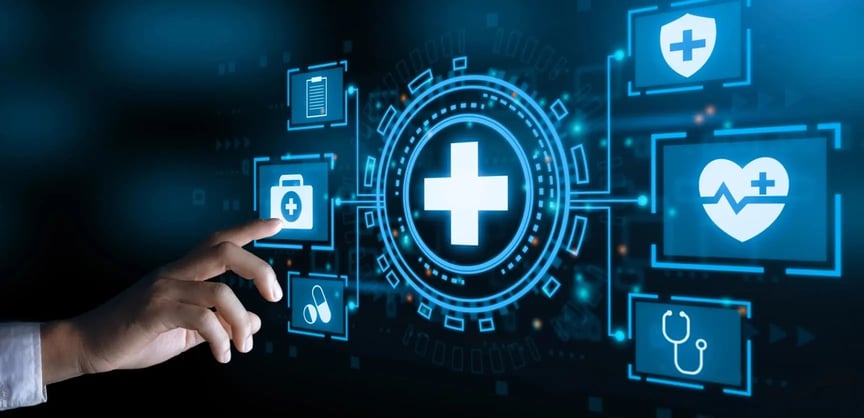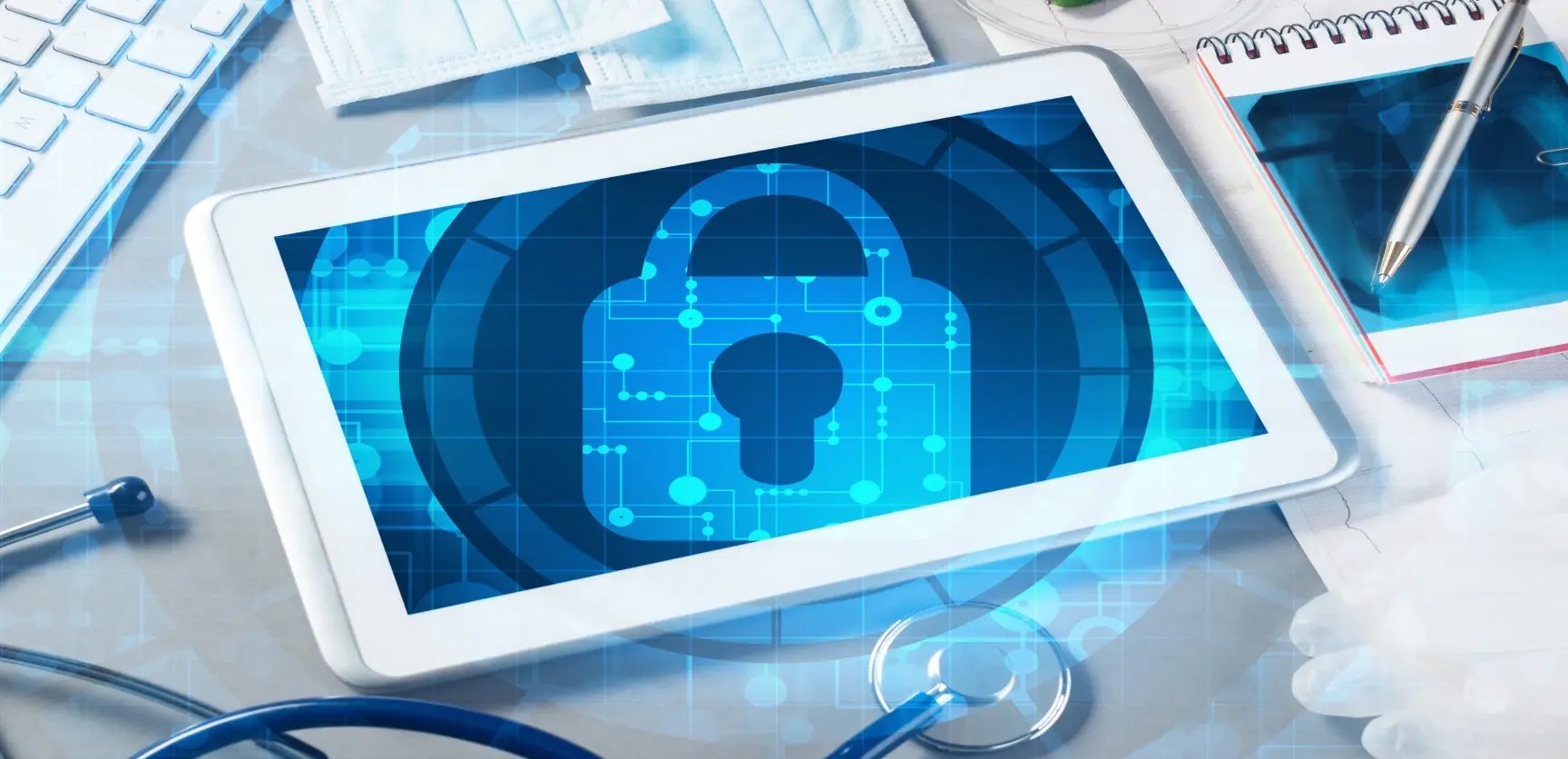- Product
-
Solution
-
By Industry
Cybersecurity solutions tailored to your industry’s needs.
-
- Resources
-
Books
Our ultimate guides and playbooks
Solution Briefs
Overview of PureDome’s functionality
-
Quizzes
Assess your cybersecurity readiness
Case Studies
PureDome customer success stories
Newsletter
Subscribe to the PureDome newsletter
-
- About Us
- Partner
- Pricing
- Download
Are Secure Remote Access Solutions Suitable for Healthcare Professionals?
-
Sharmeen Saleem
-
30 Jan 2024
- 4 min read


The healthcare industry has witnessed significant transformations over the years, driven by advancements in medicine, technology, and the recent global pandemic. These changes have reshaped how healthcare services are delivered, with trends like telemedicine and telehealth gaining prominence.
While adapting to these evolving times, it's crucial to provide excellent patient care without compromising staff safety. However, the convenience of remote healthcare also raises concerns about security and privacy, particularly when handling sensitive patient data outside the secure confines of hospital facilities.
The insecure handling of patient data poses significant risks to healthcare security and privacy, potentially leading to non-compliance with HIPAA requirements for safeguarding Patients' Personal Health Information (PHI).
As a healthcare provider, you can harness the benefits of remote healthcare's accessibility and efficiency while maintaining the privacy and security of patient data through tools like Secure Remote Access solutions.
What Is Secure Remote Access?
Secure remote access is a technology healthcare IT professionals and other industries use to log in and operate work devices remotely. While it enhances productivity and facilitates remote troubleshooting, monitoring end-user devices is essential to prevent unauthorized access and data breaches.
Effective, secure remote access solutions improve patient services and boost employee productivity by simplifying service delivery, collaboration, and troubleshooting.
What are some Operational Challenges in Healthcare?
Like any industry, the healthcare sector has its fair share of challenges. There's much to navigate, from technological advancements and rising patient expectations to continually evolving government regulations. Healthcare operations extend beyond patient treatment alone.
Here are some of the operational challenges that healthcare providers face:
Patients Located in Remote Areas:
Patients in rural areas face unique challenges, including limited access to proper public transportation, shortages of healthcare providers, and substantial geographical distances from treatment centers. This situation burdens rural residents disproportionately, potentially disadvantaging their access to healthcare services.
Troubleshooting Technical Issues:
Technical problems have become increasingly common in healthcare, with potentially severe consequences due to the critical nature of patient care. Rapid troubleshooting is essential to prevent delays in service delivery, yet technical issues can be challenging to anticipate. IT infrastructure and teams may be spread across various geographical locations, especially if a healthcare facility has multiple branches. Users at these locations often access resources through VPNs, SaaS applications, and cloud-hosted files, complicating the IT troubleshooting process.
Safety of Patients' Data:
Data privacy and security concerns have grown as medical data is primarily stored in electronic medical records. The healthcare industry handles extensive customer data, necessitating a significant responsibility to safeguard sensitive information. Unfortunately, data breaches in healthcare have been on the rise. According to a study from the HIPAA Journal, 4,419 healthcare data breaches of 500 or more records were reported to the HHS’ Office for Civil Rights between 2009 and 2021. These breaches resulted in the loss, theft, exposure, or unauthorized disclosure of 314,063,186 healthcare records.
This underscores how data breaches pose a substantial threat to healthcare service providers. Beyond causing downtime, they expose healthcare facilities to significant penalties for non-compliance with standards and jeopardize their reputation.
Protect sensitive data with HVAs:
As the demand for healthcare virtual assistants grows, companies increasingly search for those with the requisite skills. Nonetheless, remote work can expose virtual assistants to significant security vulnerabilities despite the technological advancements that facilitate such arrangements.
For example, virtual assistants often find themselves in the position of sharing sensitive data over public networks using their devices, a practice fraught with risks. It is vital to address this issue to ensure the data's security. To effectively tackle this pressing concern, it is imperative to employ a secure and dependable secure remote access solution.
By doing so, virtual assistants can securely exchange and access crucial documents and sensitive information without fear of theft or compromise. Additionally, your data remains safeguarded and protected at all times.
Fortunately, many of these emerging healthcare challenges can be mitigated by adopting best practices. One practical approach is leveraging secure remote access solutions. These solutions not only simplify collaboration and service delivery but also ensure the safety of patient data. For instance, an IT support engineer can address technical issues for a practitioner handling patients on-site, remotely, or in remote areas. Importantly, these solutions provide confidence that sensitive data remains secure during transmission over the internet, protecting against potential breaches.

PureDome's Secure Remote Access Solution for Healthcare
PureDome offers healthcare organizations a comprehensive secure remote access solution that allows for the seamless onboarding of virtual assistants while adhering to critical regulations such as HIPAA. With PureDome's solution:
- Administrators can allocate unique IP addresses to each virtual assistant.
- Robust encryption protocols are employed, establishing a secure VPN tunnel that connects the virtual assistant's device to the organization's private gateway, ensuring full encryption and security for all transmitted data.
- Monitoring capabilities, including connection timestamps and access logs, provide an added layer of oversight and security assurance.
Through these safeguards, PureDome creates a secure and streamlined environment for virtual assistants working within healthcare organizations, effectively addressing the challenges associated with remote healthcare service delivery and data security.
The Significance of Secure Remote Access Solutions in Healthcare
It's undeniable that secure remote access solutions are paramount in the healthcare sector, facilitating accessibility and efficiency for various professionals. Here's how these solutions benefit different healthcare stakeholders:
For Healthcare Providers (Doctors and Nurses):
Healthcare professionals often work from diverse locations to attend to numerous patients. Secure remote access tools empower doctors and nurses to extend their services without compromising patient data security. They can virtually connect with patients, conduct comprehensive examinations, deliver real-time diagnoses, and administer prompt treatments.
For Technical Support Teams:
In healthcare, technical support teams can swiftly resolve issues and provide assistance remotely using secure remote access tools while maintaining data security. This enables them to offer efficient remote assistance to healthcare practitioners and teams operating anywhere. Technical teams can guide medical professionals in device installation, troubleshooting, software updates, and device monitoring to mitigate common cybersecurity threats.
For the Healthcare Community:
Secure remote access tools promote seamless collaboration among healthcare professionals, allowing them to share and collaborate on files while safeguarding patient data. Enhanced collaboration enables more comprehensive, population-based, and cost-effective patient care. This approach strongly emphasizes health promotion and disease prevention, addressing common challenges in the healthcare sector.
Recognizing that a single patient may interact with multiple healthcare professionals within a facility, including physicians, nurses, and technicians, is essential. Ensuring a synchronized team with high levels of collaboration ensures that patients receive the best possible care and experience.
For Lab Technicians:
Lab technicians can streamline their remote work, enhance efficiency, and prioritize safety through secure remote access solutions. Establishing robust infrastructure, including centralized data storage and cloud-based digital solutions, leads to quicker and higher-quality clinical results. Remote access is invaluable in troubleshooting machine malfunctions in sterile lab areas, reducing costly downtimes, and facilitating software updates and maintenance. Additionally, it ensures secure sharing of patient data among lab practitioners.
Wrapping Up
The healthcare landscape is transforming, where technology plays an increasingly crucial role in service delivery. Healthcare professionals are adopting a distributed approach, providing virtual care and collaborating across digital platforms. However, challenges such as IT downtimes and data breaches are prevalent. To effectively harness the potential of technology for streamlined service delivery and collaboration, healthcare organizations must develop strategies. This involves investing in the appropriate tools and proactively optimizing technology adoption while safeguarding against common threats.
Frequently Asked Questions
What is Secure Remote Access in Healthcare?
Secure remote access in healthcare involves technology that allows authorized professionals to access and manage healthcare systems and data remotely while maintaining data security and compliance with regulations.
How Do Secure Remote Access Solutions Benefit Healthcare Providers?
Secure remote access tools empower healthcare providers to offer services from different locations, conduct remote examinations, and collaborate with colleagues while ensuring patient data security.
What Challenges Can Secure Remote Access Solutions Address for Healthcare Organizations?
Secure remote access solutions can help healthcare organizations overcome issues like technical troubleshooting, efficient collaboration, and maintaining data security while providing remote care and services.
Stay up to date with the latest cybersecurity insights and best practices
Get the latest information, stories, and resources in your inbox. Subscribe for monthly updates.
Securing 1000+ Businesses Across The World